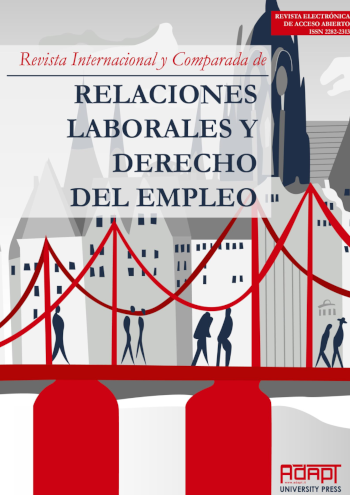Abstract
La economía compartida ha venido para quedarse. El uso de las plataformas virtuales no únicamente modifican la forma en la que las organizaciones empresariales prestan sus servicios, sino también afectan al mundo laboral. Uber es una empresa que actúa como “intermediaria de servicios” poniendo en contacto a posibles clientes con conductores de la aplicación, siendo entendida como una alternativa low cost del servicio de transporte tradicional: el taxi. Existen grandes dudas sobre cómo deben ser considerados los conductores que prestan sus servicios a través de la plataforma, si existe o no relación laboral entre los mismos, y en caso de existencia, qué posición ocupan los conductores (autónomos o trabajadores). Uber resultaría difícilmente admisible en España tal cual se considera en la actualidad. Este estudio profundizará en la cuestión y afirmará la existencia de relación laboral de carácter “especial”, aportando posibles soluciones jurídicas para permitir su operatividad en España.
Sharing economy is here to stay. The use of online platforms is not only changing the way in which business organisations provide their services, but also directly affects the working conditions and the world of work in general. Uber is a company operating through a virtual platform as an “intermediary service”, contacting potential clients with drivers using the application. It can be considered as a low cost alternative to traditional transportation services: taxis. It remains unclear how drivers who offer their services through the online platform should be considered, whether there is an employment relationship between them or not, and, if so, which labour regime should be applicable (self-employed or employees). Uber’s organisation makes it difficult to be acceptable in Spain as it is seen today. Therefore, this study will introduce possible legal solutions to regulate this virtual platform and the working conditions, allowing in this sense the company’s operation in the country.

